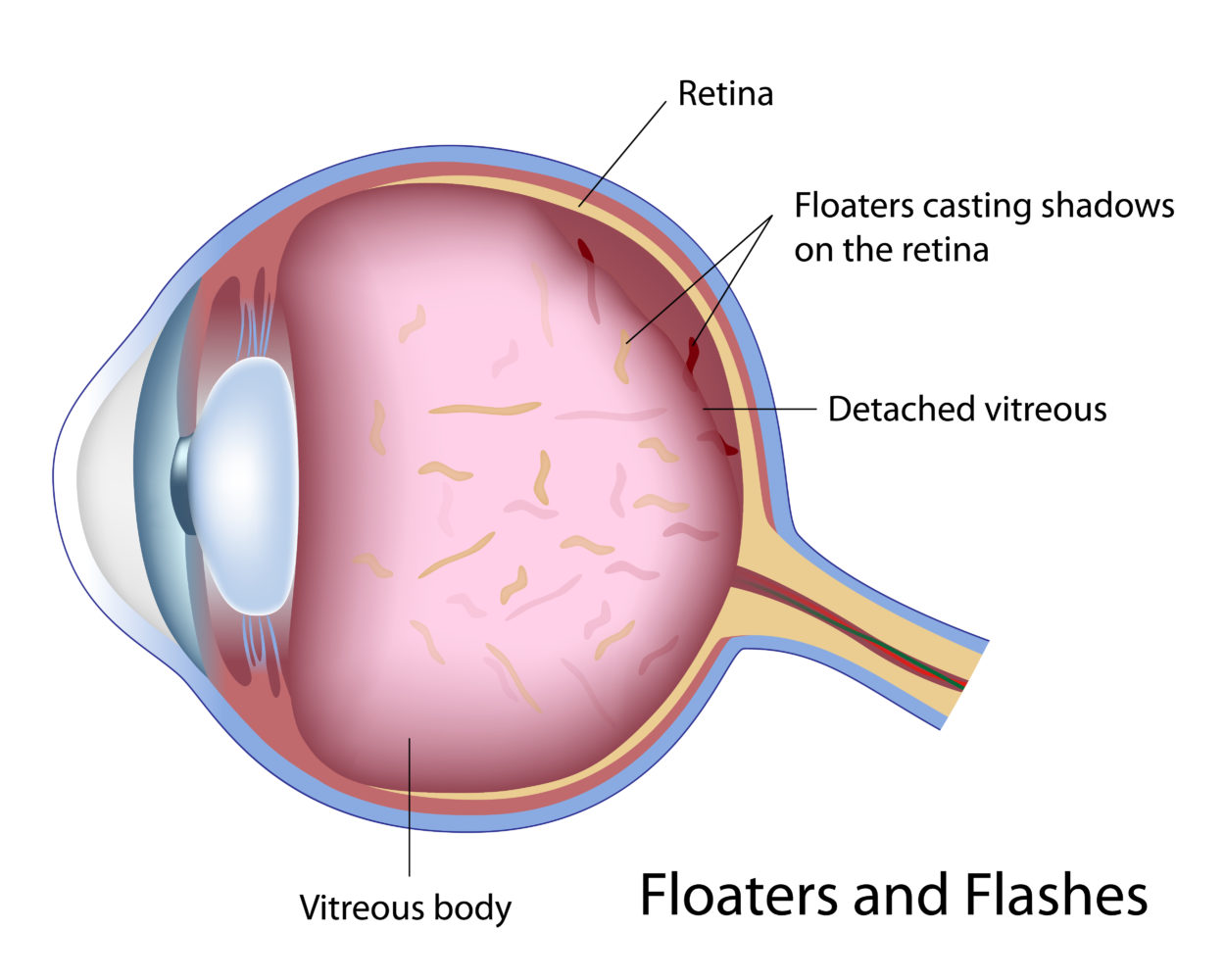Vitreous Detachment is the separation of the vitreous from the retina. If you are wondering what vitreous is, don’t worry, as most people have never heard of it. In simple terms, the vitreous is the gel that fills the eyeball and helps it keep its round shape.
The vitreous is filled with millions of tiny fibers that are attached to the surface of the retina. Like the name (vitreous detachment) says, the vitreous detaches from the retina.
As we get older, our vitreous shrinks, pulling on the retina and causing the fibers within the vitreous to break. The vitreous then breaks free from the retina and continues to shrink.
Symptoms of Vitreous Detachment
The symptoms of Vitreous Detachment are not as severe as you might think. In most cases, those with Vitreous Detachment find the symptoms more annoying than dangerous. Most often, the patient experiences what are known as “floaters” in their vision and possible light flashes. Although these symptoms themselves may not appear to as dangerous as the name implies, it is still important to have your eyes examined by a specialist.
While the basic and most common symptoms of Vitreous Detachment are not that dangerous and they don’t require treatment, it can sometimes lead to other vision problems that are more serious and require immediate treatment.
If the vitreous pulls too hard on the retina it can cause what is known as a macular hole , a retinal tear, or even a detached retina. All of these issues can be dangerous and can lead to total and permanent loss of vision in the affected eye. Treatment is needed for these conditions and should be sought right away. Because Vitreous Detachment can cause these more serious conditions, it is recommended that you see an eye specialist urgently in the event of increased floaters or light flashes.
Treatment for Vitreous Detachment
In most cases, the common symptoms that you experience with Vitreous Detachment will improve themselves over time. This usually takes about 3-6 months and does not require any type of treatment.
There is a treatment for the condition, however, but is only recommended when the floaters are severe and impair your daily activities like driving. This procedure is known as a vitrectomy. There are risks associated with this type of surgery, so it is only recommended in severe cases, and when the Vitreous Detachment could possibly lead to more significant eye complications.
If you have questions about Vitreous Detachment or are experiencing some of the symptoms associated with the condition, call us at 954-772-3337 to set up an appointment with one of our retina specialists.

